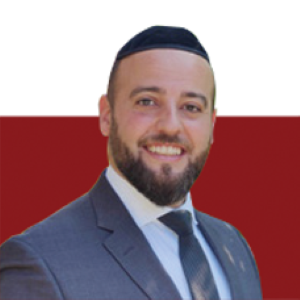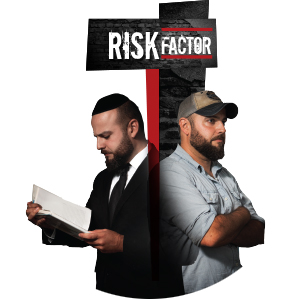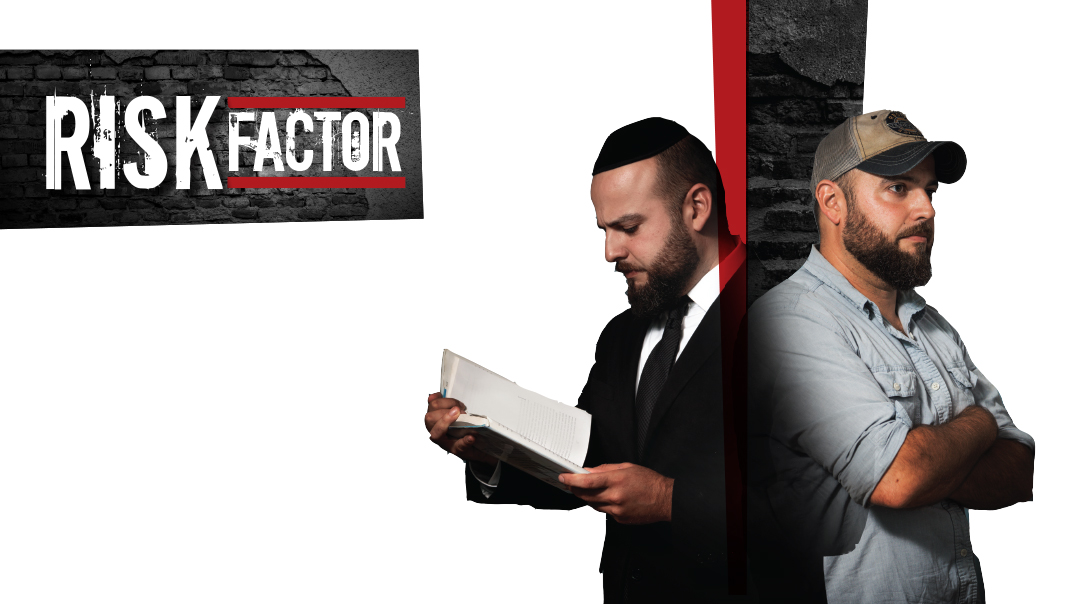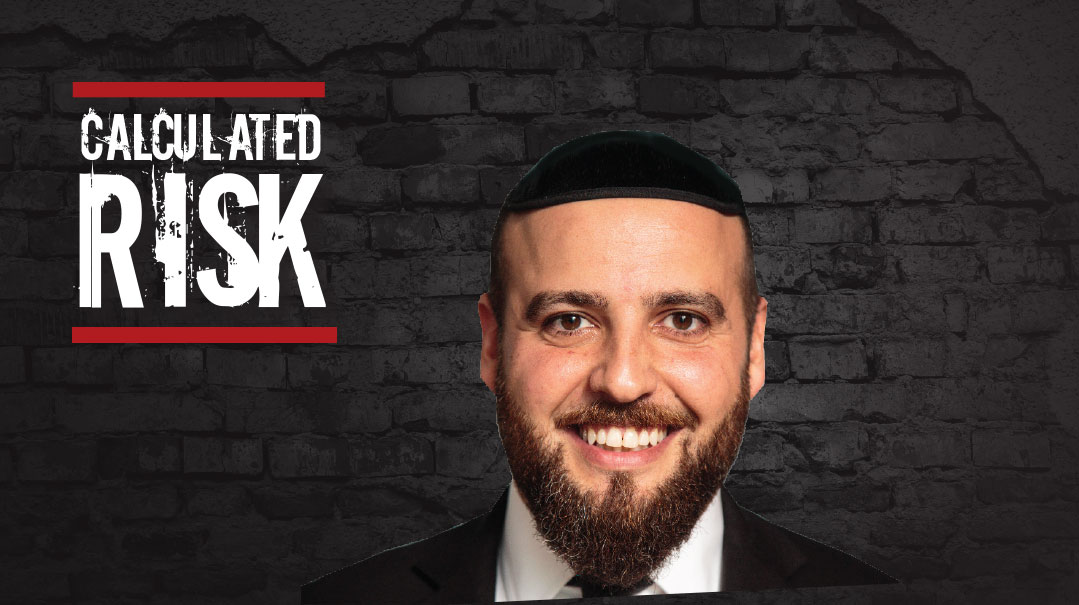The Sign on the Door

"Yoni was strong and Danny was strong. Why couldn’t they overcome this challenge?”

I
pulled up slowly behind a row of parked cars. I didn’t want to get out of the car. I was dreading arriving.
I was proud to see that a lot of people from the community were there. As I stepped out of the car, I allowed myself, even in this place, to feel blessed that I was part of a community that knows how to be there for each other.
A car pulled up immediately behind mine. It was Yehoshua Klein, an old student of mine. He had developed an expertise in working with teenagers in his own right. He got out of the car with a few local boys.
We nodded at each other.
There was a world of meaning in that nod. Over the next hour or so, I exchanged that nod with a few other people present. I can’t explain it, but we understood.
Yehoshua and I walked forward together, followed by a cluster of boys we had brought in our cars. There was a group gathered ahead, and reluctantly, inexorably, we drew closer to join them.
Rabbi Kielski was being maspid. Rabbi Kielski is a tzaddik; all heart. He runs a summer group for these boys, affectionally dubbed “Kielski’s crew.” He was talking about Yoni’s beautiful soul. Everyone there knew what he meant. Yoni’s spirituality and magnetic likeability was what had connected him to every single person who had showed up there that day.
I looked around. I saw CP Handler, an extremely talented, straight-talking local therapist who worked for Naaleh, a local organization.
We nodded at each other.
It was similar to the nod I had shared with Yehoshua, but different, because of our responsibility. Despite what people might think or say, no one is ever at fault for these things. But someone needs to be responsible for the aftermath. We knew it would be us and Rabbi Kielski, assisted by Yehoshua and others.
It was a good team.
When the hespedim were finished, I gathered the local boys I knew and some I didn’t and brought them to help with the kevurah. In a situation like this, having the friends help with the kevurah is extremely important for closure.
I hate that I have to have information like that in my head.
Some of the boys were reluctant. We talked them through it. Through our tears. We held them tight. Now is the time to say goodbye.
I felt a hand on my shoulder. I turned to face Neil Vaiselberg. His face was stained with tears. He hugged me.
“He’s finally at peace now. This is how Hashem wanted it,” he said.
He was comforting me. At his own son’s levayah.
“I want to show you something,” he said. He took me by the arm and pointed at the grave next to Yoni’s. The small temporary marker with Yoni’s name had been blown to the side by the wind. It was leaning against the sign marking the next grave — also a relatively new, temporary sign. Yoni’s signed tipped sideways, supported by the other sign. Not supported — cradled. Cradled lovingly by the other sign.
Neil smiled at me, squeezed my shoulder. “Yoni really was his brother’s keeper. Yoni and Danny are together now,” he said, looking at me. “Yoni and Danny. The heart and the soul.”
Danny was Yoni’s younger brother. He had passed away two months before. Yoni had told me they were inseparable in spirit. I guess he was right.
I stared at the signs, leaning on each other, cradled together. It definitely brought a certain peace.
I walked over to CP. She informed me that she and Rabbi Helman, the director of Naaleh, were taking the local teens to Naaleh for an open group session to help them process everything. They had all been friendly with Yoni and Danny.
As I was leaving, I saw Shmuel Vaiselberg, Danny and Yoni’s 15-year-old younger brother. We hugged.
“The boys are all going with Yehoshua and CP,” I said, “which means I’m riding home alone. Want a lift?”
He smiled that famous Shmuel Vaiselberg smile and nodded. We got into the car.
“Can I ask you something?” Shmuel said after a few minutes. He didn’t wait for an answer.
“Is it true that we’re only given challenges that we can handle? Someone said that to me but I don’t think it’s true. I mean, Yoni was strong and Danny was strong. Why couldn’t they overcome this challenge?”
Shmuel was a smart, mature, and extremely insightful kid. He wanted my answer, not my sympathy.
“Shmuel, if I was in a ring with a professional boxer and I lasted one minute and then got knocked out, it would be a huge accomplishment. My success wouldn’t be measured by whether or not I won the match, it would be measured by how long I fought. Your brothers were warriors. I believe they passed their challenge.”
We sat quietly for a bit.
“Moving forward is gonna be hard,” he said. “I want to be strong. It’s just…”
“Now isn’t the time to be strong. It’s the time to feel and accept and be there for each other,”
I said, trying to sound confident but feeling like a fraud.
He didn’t seem satisfied with my answer. Which was okay. I wasn’t satisfied either.
As we pulled up to his house, I noticed a sign hanging on the front door. I pointed at it.
“Shmuel, what is that?”
“That sign was hanging in Danny and Yoni’s room,” he said, staring at it.
We both felt it — Danny and Yoni consoling us from where they were.
The sign read, “You got this.”
L’illui nishmas Yonasan Dov ben Nachman and Daniel Yehoshua ben Nachman
(Originally featured in Mishpacha, Issue 823)
Oops! We could not locate your form.




Comments (1)